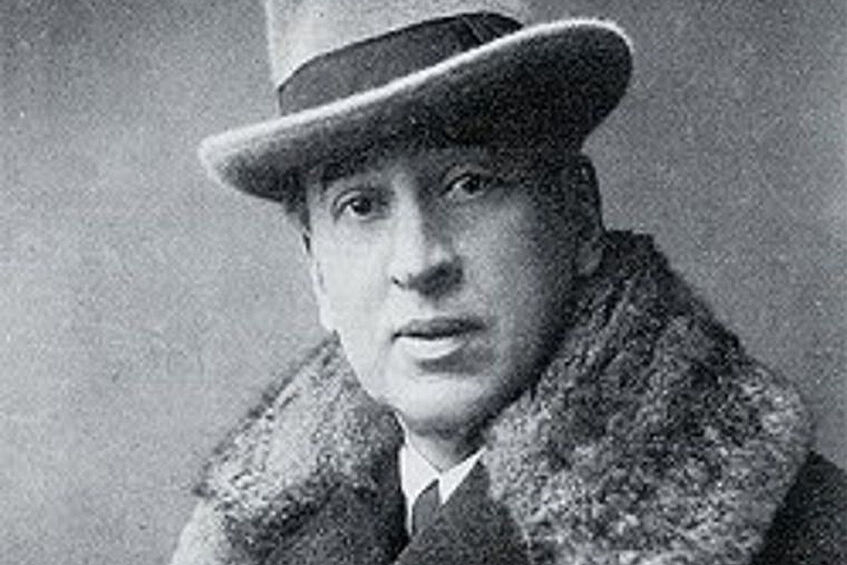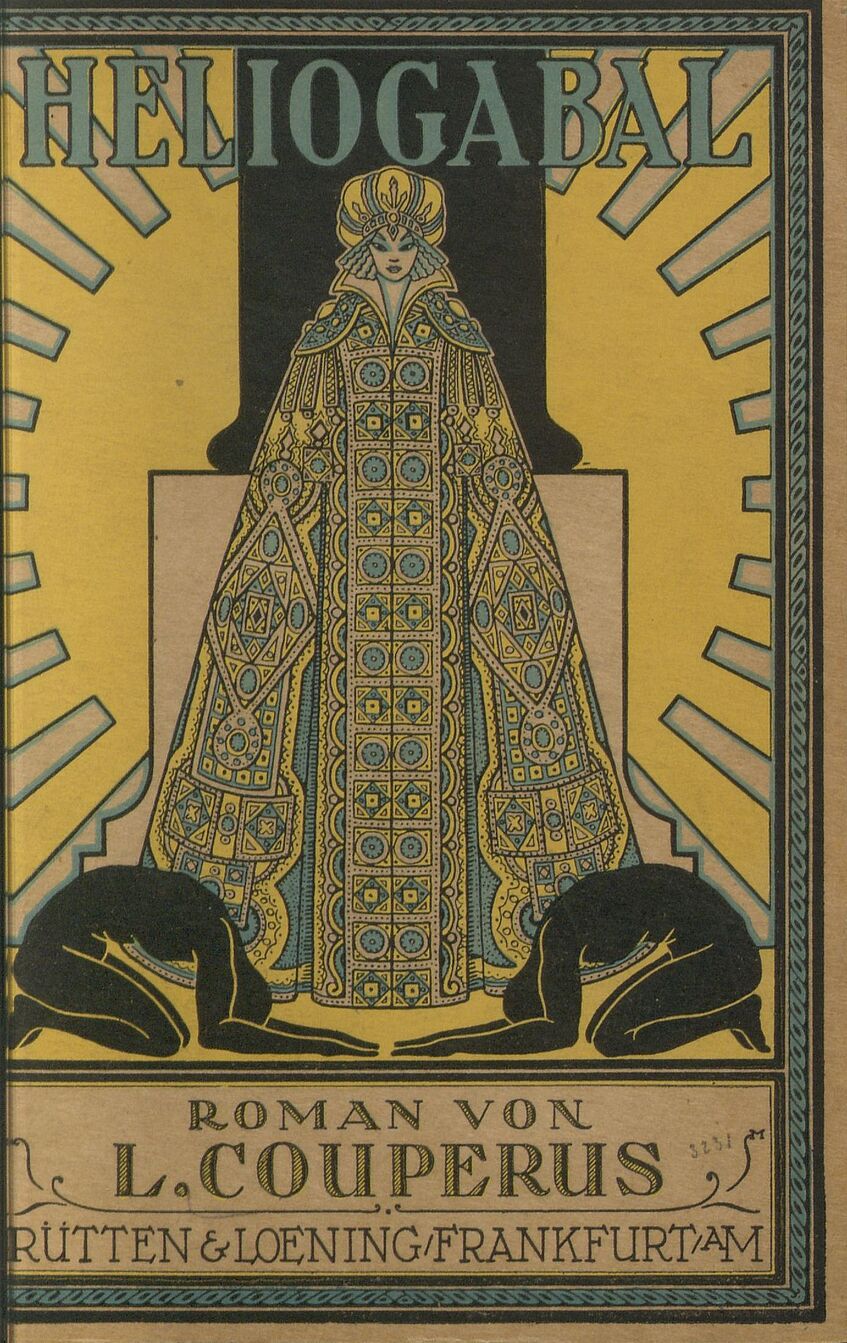Louis Couperus, „Heliogabal“. (Einzig berechtigte Übertr. aus dem Holl. u. Bearb. von Else Otten). Frankfurt a. M., Rütten u. Loening, 1917
"Louis Couperus (1863-1923) is arguably the greatest Dutch novelist. He made his name at home and in the English speaking countries with psychological novels such as The books of the small souls, The hidden force and Old people and the things that pass. From the age of forty onwards, he was more and more inspired by classical antiquity. Couperus, who firmly believed in reincarnation, was convinced he had been an ancient Roman in a previous life. His psychological novels had more success in England and the USA, whereas his historical books were more appreciated by the German speaking public. Only a few of his works have been translated into French.
Couperus' decadentist novel De berg van Licht (The Mountain of Light / Heliogabal) was widely condemned and never reprinted during Couperus' lifetime. Now it counts as one of his greatest achievements. Its subject is the rise and fall of the Roman emperor Elagabalus, who ruled Rome from 218-222 AD. Elagabalus was the ultimate representative of the decline of ancient Rome. Posthumously, he was accused of the most monstrous cruelties and sacrilige. Allegedly, he was a perverse madman who castrated his victims and put the eunuchs into his harem, he suffocated his dinner guests in a shower of roses and he slaughtered newborn babies in order to read the future in their entrails. He brought his exotic religion to Rome - Elagabalus worshipped a black stone, symbol of the Syrian sun god Elagabal after which he was nicknamed - and tried to subject the Roman gods to this deity. Eventually he was murdered in the slave quarters of his palace, aged eighteen, and his remains were chucked into the river Tiber.
In the course of the nineteenth and twentieth centuries opinions about the emperor were reversed. Slowly, Elagabalus grew into an anti-hero, an artiste manqué, a crowned anarchist and a hero of the sexual revolution. As such, this new image furnished endless inspiration for art and literature right up until the current day and age. Couperus's novel fits perfectly into this trend. In his book, Elagabalus is a sensitive soul, an adorably beautiful child whose dance around the Black Stone seduced the Roman army in Syria to proclaim him emperor at the age of fourteen - an office he himself never craved. Transplanted to Rome, this delicate orchid rapidly grew into a poisonous weed. Couperus wallows in descriptions of Roman orgies and all kinds of atrocities, but his sympathy is with a boy emperor who never aspired to the throne."
from the site The Louis Couperus Museum


